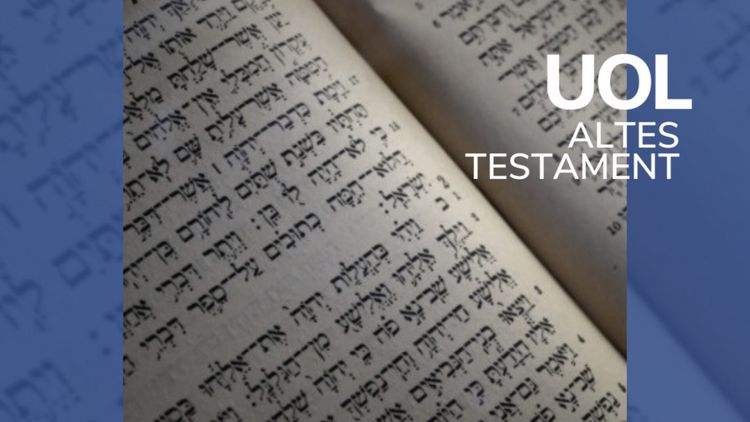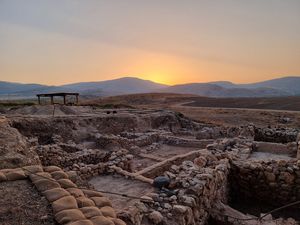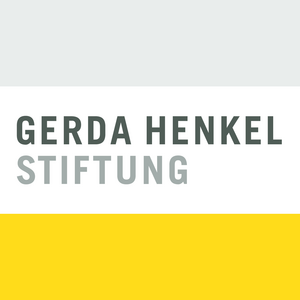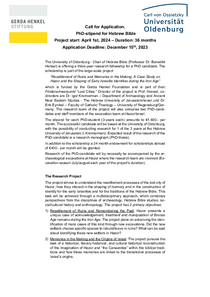Resettlement of Ruins and Memories in the Making
Lehrstuhlinhaber/in:
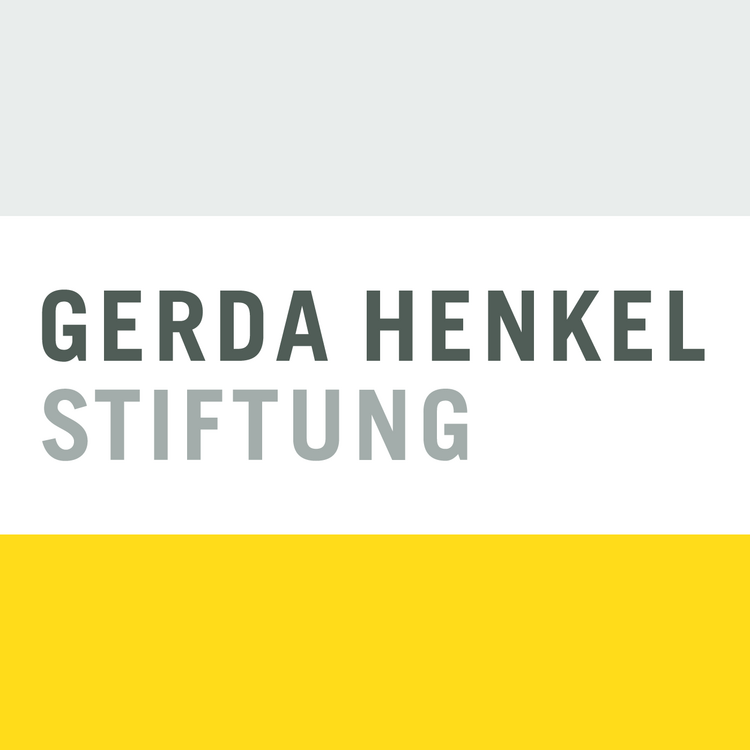
Gefördert durch die Gerda Henkel Stiftung (https://www.gerda-henkel-stiftung.de)
Projektleitung/Project director
Projektpartner/Co-directors
Projektstellen
Project office / Project coordinator
Maryam Matta – University of Oldenburg
Contact:
Das Projekt in der Presse
mdr Wissen Bericht: Hazor: Deutsche Forscher wollen Ursprünge des Volkes Israel beleuchten (7.4.2024).
Eine antike Megastadt im Umbruch. Forschungsprojekt befasst sich mit der Besiedlungsgeschichte der eisenzeitlichen Metropole Hazor in Israel (02.04.2024).
Oldenburger Theologieprofessor Hensel ist Ko-Direktor von Israels derzeit größter archäologischer Grabung. Besondere Exkursion nach Hazor: Auch 20 Studierende sind bei Ausgrabung antiker Megastadt dabei (17. Juli 2023).
Resettlement of Ruins and Memories in the Making
A Case Study on Hazor and the Shaping of Early Israelite Identities during the Iron Age
Forschungsprojekt 2024-2027 im Förderschwerpunkt “Lost-Cities” der Gerda Henkel Stiftung
Project-team
Director/Projektleiter:
- Prof. Dr. Benedikt Hensel - Chair of Hebrew Bible – University of Oldenburg/Germany
Co-directors/Projektpartner:
- Dr. Erik Eynikel – Faculty of Catholic Theology – University of Regensburg/Germany
- Dr. Igor Kreimerman – Department of Archaeology and Ancient Near Eastern Studies- The Hebrew University of Jerusalem/Israel
Project coordinator – Project office
Two Postdoc Positions (Archeology and Hebrew Bible)
Staff members of the Hazor excavation project
The Task of the Project
Within this recent and crucial discussion, the “Resettlement of Ruins and Memories in the Making”-project strives to understand the resettlement processes of the lost city of Hazor in their interaction with the memory shaping and identity construction of the early origins of Israel and in its significant literary traditions, which later become the Hebrew Bible. This task will be met
- through the lens of the megapolis of Hazor, whose complex settlement history of de- and re-urbanization as one of the largest former megacities of the Southern Levant in antiquity covers the entire period targeted in this project.
- by bringing these detailed observations into a general and much needed overall picture of cultural and ethnic continuities, discontinuities, and LBA/Iron I-II transitions in the Southern Levant.
This task can only be met through the unique multidisciplinary approach chosen for this project, which will combine the perspectives from the disciplines of archaeology, social/cultural history, anthropology, and Hebrew Bible studies. The project has two primary objectives, leading to the two areas of research described in the following section:
- “Resettlement of Ruins and Remembering the Past” (Archaeology; Nitsan Shalom): Hazor presents a unique case of acknowledgement, treatment and manipulation of Bronze Age remains during the Iron Age. The project plans on advancing the identification of more cases of this kind through new excavations. Did the new settlers have prior knowledge of the destroyed buildings? Did they choose specific spaces to rebuild/leave in ruins? What can be said about the (cultural or ethnic) identity of these new settlers in Hazor?
- “Memories in the Making and the Origins of Israel” (Hebrew Bible Studies and Cultural History; Kishiya Hidaka): The project pursues the task of a historical, literary-historical, and cultural historical reconstruction of the imagination of Hazor and the Canaanites within the biblical traditions and how these memories are linked to the transitional processes of the origins of Israel, or rather the “memories of Israel” as an early tribal culture.
Each area of research will by necessity be accompanied by the archaeological excavations at Hazor where the PI and the research team are involved.
Publications
- Hensel, Benedikt/Kreimerman, Igor, “Neue Ausgrabungen in der Megapolis Hazor: In die Siedlungsschichten des alten Israel hinabsteigen,” in: Welt und Umwelt der Bibel 1 (2024), 62-65.
Abschlussarbeiten / MA-Thesis
- „Josua 11, Richter 4 und Hazor: Literarische Befunde und archäologische Evidenzen” (Lennart F. Frost, University of Oldenburg; supervisor: Benedikt Hensel)
Related Projects
- Forschungsprojekt (University of Oldenburg) „Hazor Excavations Project” (Benedikt Hensel, Co-Director; iwith Direcot Dr. Igor Kreimerman, The Hebrew University of Jerusalem, Israel) (since 2023).
- Forschungsprojekt (University of Oldenburg) „Ich mache eure Städte zu Ruinen ...“ (Lev 26,31): Ruinen als materielle Zeugnisse und Identity Marker im Israel/Palästina der Eisenzeit“ (since 2024) (Dr. Felix Hagemeyer)



